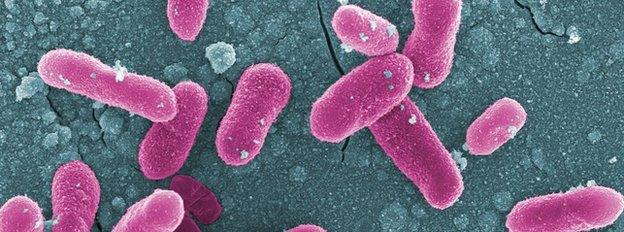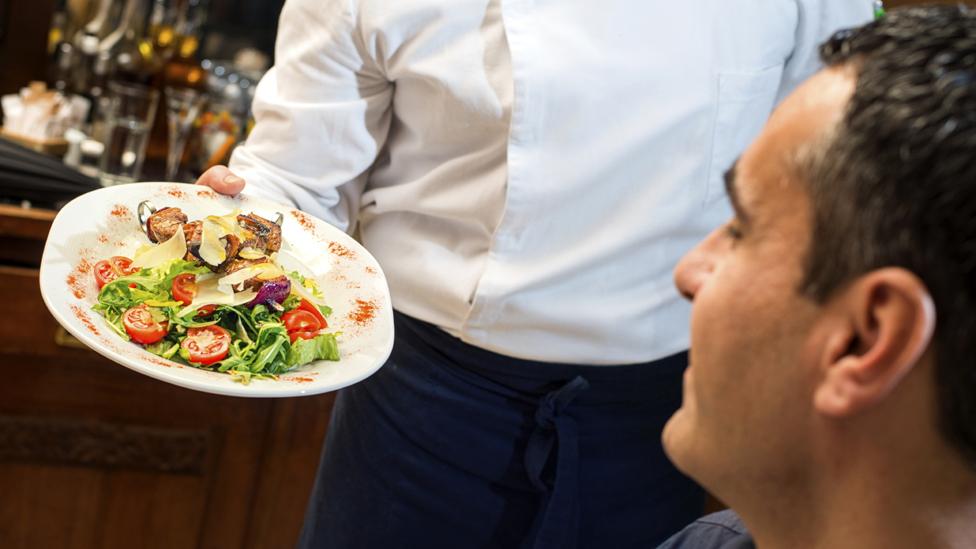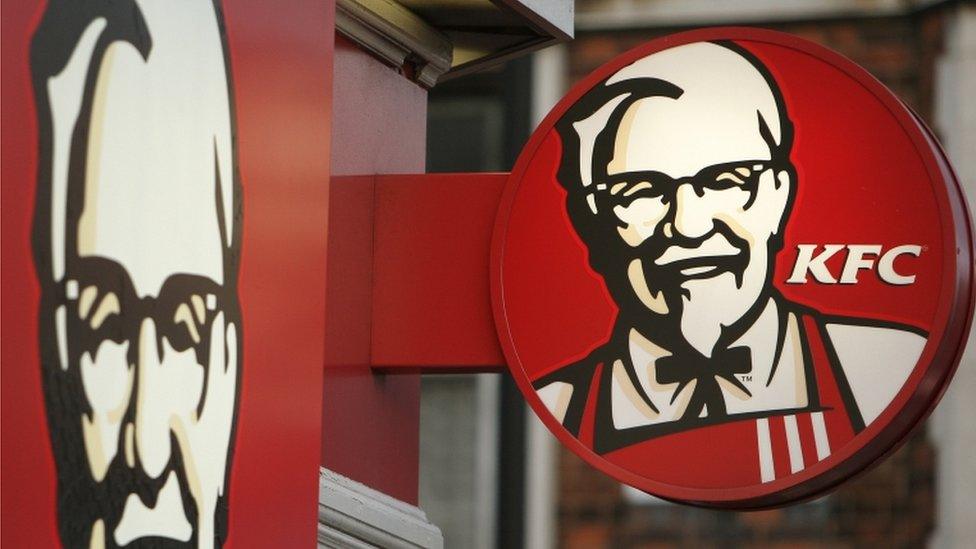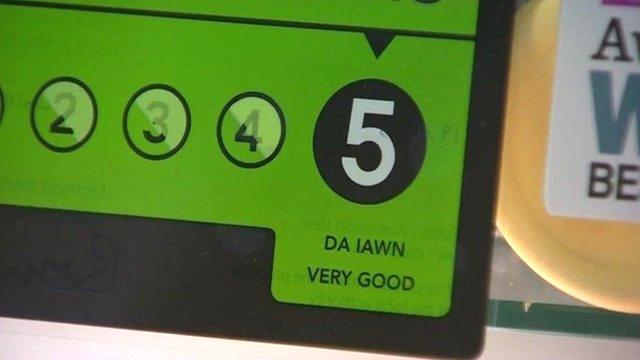'Health risk' warning over fall in food safety checks
- Published

Food hygiene inspections in the UK have fallen by 15% since 2003, research shows - with experts warning of risks to public health.
The number of inspections, which are handled by local authorities, fell from 307,526 in 2003-04 to 260,765 in 2014-15, the study found.
The Food Standards Agency watchdog said the situation was of "growing concern".
The Local Government Association said councils "work extremely hard" on food safety despite budgetary pressures.
Ministers said public safety was "paramount" and the "majority of local authorities have continued to balance their budgets and increased or maintained public satisfaction with services".
'Kept away'
The figures, obtained by Prof Steve Tombs for the Centre for Crime and Justice Studies, external, using freedom of information requests to the Food Standards Agency (FSA), show almost 47,000 fewer inspections were carried out in 2014 than in 2003.
The number of establishments prosecuted also fell by 35%, from 552 to 361, over the same period.
Prof Tombs, who is professor of criminology at the Open University, said "policymakers need to urgently address the radical reduction in local authority inspections and enforcement."

Food Safety Inspections

Food premises are rated from "0" - meaning urgent improvement is required - to "5", meaning hygiene standards are very good
These scores are based on inspections by officers from the local authority
They look at how food is prepared and cooked, as well as reheating, cooling and storage
They also look at the condition of the building and what the management are doing to make sure food is safe
Gaps between inspections are based on a risk assessment
Category A premises should be inspected at least every six months
Category E businesses - such as off-licences - need to be assessed only every three years

The BBC's 5 live Investigates programme has seen minutes of an FSA board meeting from January this year where concerns were raised over rising numbers of complaints and falling staffing levels.
"The overall position is one of growing concern," the agency warned.
"At a local level, there are a good number of authorities which are struggling to undertake interventions of food businesses at the required frequencies."
The minutes also state that many local authorities "are not able to deliver a food service as set out in statutory Food Law Code of Practice".
"We are also acutely aware that local authority resources, particularly in England, will face further significant reductions over the next few years," the minutes show.
Since 1 April 2015 Food Standards Scotland (FSS) has had responsibility for food safety and food standards in Scotland.
'Less time'
A number of environmental health officers spoke anonymously to 5 live Investigates.
"We're doing fewer inspections now," one said. "There are a lot of places where years ago I would have definitely gone back for a revisit - quite often now I won't have time."
Another said: "The number of food poisoning incidents has been going up.
"You have fewer officers trying to do more inspections; which means we have less time when we go into a place."

Case study

Debby's 10-year-old daughter was admitted to hospital during a salmonella outbreak in 2014 which affected 54 people.
"She started complaining of severe stomach cramps. She had really bad diarrhoea and she was having bad hallucinations."
Investigators found poor hygiene procedures at a takeaway, which cannot be named for legal reasons, allowed potentially deadly salmonella bacteria to pass from eggs to other food.
The last full inspection of the premises was 20 months before the outbreak and it received a Food Hygiene Rating of two, which means that "improvement is necessary".
In June 2013 an environmental health officer visited to provide "support and guidance"- and a year later the outbreak occurred.
"If I'd known that I would have kept away and we never would have bought anything from there," said Debby, who does not want to use her full name.
The local authority involved said it visited in 2013 and "was confident that improvements were being made. A further inspection was imminent, as part of routine procedures, when the council received notification of the reported links to salmonella cases."

The Institute for Fiscal Studies found that spending by local authorities in England was cut by 20.4% between 2009-10 and 2014-15.
Shadow environment secretary Kerry McCarthy said: "Local authorities are clearly struggling under the weight of government cuts to fulfil their statutory duties and that is not acceptable when public safety is jeopardised."
Cllr Simon Blackburn, from the Local Government Association, which represents councils in England and Wales, said: "Councils are doing everything possible to maintain checks in this area despite budgetary pressures, and a reduction in inspections does not necessarily mean an increased safety risk.
"Councils know their local areas best and target reduced resources at the riskiest businesses, while national coordination through the Food Standards Agency also helps to ensure that areas of the food industry most at risk are generally targeted accordingly.
"Combining reports and collaboration allows councils to share intelligence and avoid duplication of effort, which helps to account for some of the reduction in inspections."
'Complex food industry'
A Department of Communities and Local Government spokesman said: "We have given councils the long-term settlement that they wanted and they will have almost £200bn to spend on local services over the lifetime of this Parliament.
"It is for local councils to decide how they deliver the services local people want to see."
The FSA said helping local authorities protect consumers was a top priority.
"Our data and intelligence from over the last five years shows that local authorities are continuing to target their activities on food businesses that are most likely to be committing food fraud or where food safety risks are high so that public health protection is maintained," it said.
"We recognise the challenges being faced by local government.
"We are reviewing the way enforcement is carried out and how food businesses are regulated to develop a more sustainable and future-proofed system that deals with the many and varied challenges posed by an increasingly complex food industry."
5 live Investigates is on BBC 5 live on Sunday 1 May at 11:00 BST. Listen online or download the programme podcast.
- Published25 April 2016

- Published25 April 2016

- Published1 December 2014
